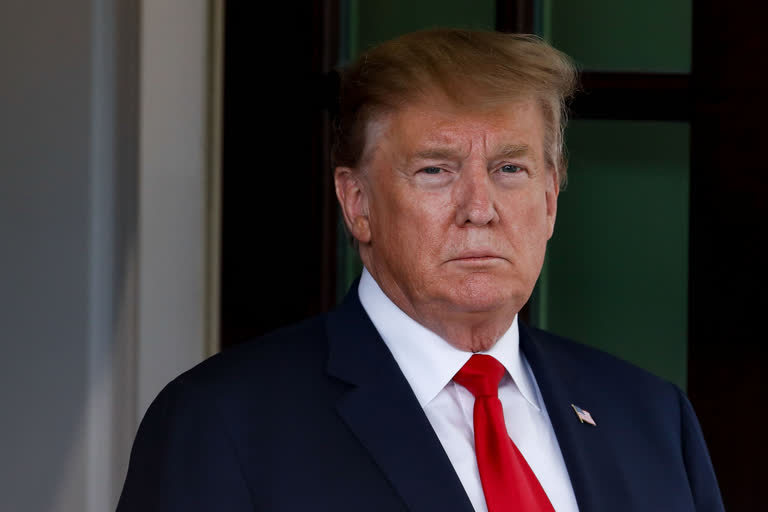New York: A US federal judge has struck down two rules introduced by President Donald Trump's administration requiring higher wages for those getting H1-B employment visas, adding restrictions and tightening some required qualifications.
"The court cannot countenance, reluctantly or otherwise, defendants' reliance on the Covid-19 pandemic to invoke the good-cause exception," to the rule-making procedure, Judge Jeffrey White wrote.
"Without any consultation with interested parties about the impact on American employers, DHS (Department of Homeland Security) and DOL (Department of Labour) made changes to policies on which Plaintiffs and their members have relied for years and which are creating uncertainty in their planning and budgeting," he added.
The US Chamber of Commerce and several universities were among the parties that sued the Trump administration over the rules issued during the middle of the presidential election campaign.
Read:| US House passes bill on scrutinising Chinese companies
They argued that the rules would drastically impact the employment prospects of new hires and could also endanger the jobs of existing employees.
One of the rules by the DOL raising the wages to qualify for the visa took effect in October, while the other by the DHS regarding qualification and placing restrictions on outsourcing companies placing their employees at other companies was to have come into effect on December 7.
The administration had said that the new regulations were urgently needed because of the unemployment caused by the pandemic among US employees and rushed through the new rules.
The Chamber of Commerce said that many companies were now "breathing a huge sigh of relief" because the rules struck down could have disrupted their operations.
NASSCOM, the Indian tech industry organisation, welcomed the court decision saying that it "clearly recognises the importance of the high skill visa programs to the US".
"NASSCOM believes this will help US businesses access talent critical to the economic recovery phase in the post-Covid world," it added.
It questioned the administration's claim that the unemployment caused by the coronavirus pandemic required those rules.
"Even during the height of the unemployment spike this year created by the Covid-19 pandemic, unemployment in the IT sector remained extremely low going from 3 per cent in January 2020 to 3.5 per cent in September 2020."
Regarding the impact of the steep increases in wage required by the DOL rule, The Wall Street Journal reported that according to DOL data an entry-level electrical engineer in San Jose, California, for example, would have to be paid at least $127,042 per year instead of the current $88,712.
While the higher wage requirement has been struck down, other changes by the Trump administration could have a similar impact on the wages of H1-B workers unless the administration of President-elect Joe Biden, who takes office in January blocks, it.
The Trump administration is replacing the system of awarding H1-B visas through a lottery system with a system in which the visas would be given according to the salaries offered on a descending order starting with a preference for those getting the highest wages.
Read:| Biden facing growing pressure over secretary of defense pick
However, Biden's manifesto said that he "will work with Congress to first reform temporary visas to establish a wage-based allocation process and establish enforcement mechanisms to ensure they are aligned with the labour market and not used to undermine wages".
Every year the US gives 65,000 H1-B visas open to all and 20,000 to those with advanced US degrees.
Indians are the biggest beneficiaries of the H1-B visas getting about 75 per cent of them, according to the US government.
In October, White had stayed the Trump administration's ban on new H1-B and H2-B work visas being issued till the end of the year.
IANS



